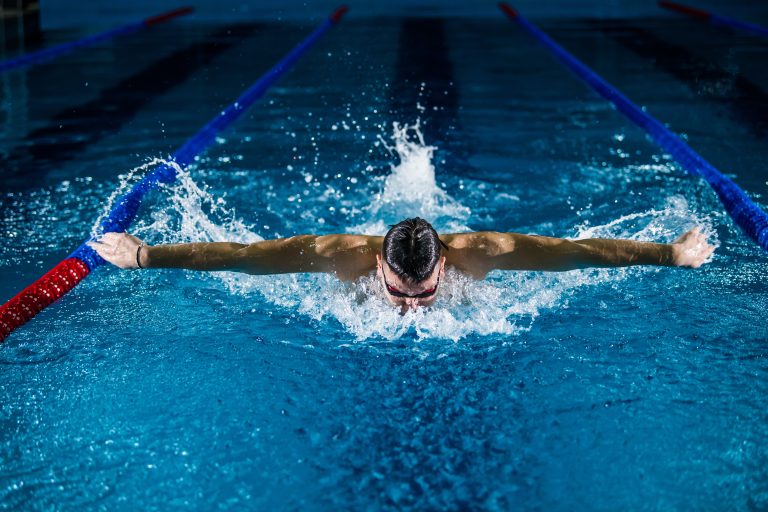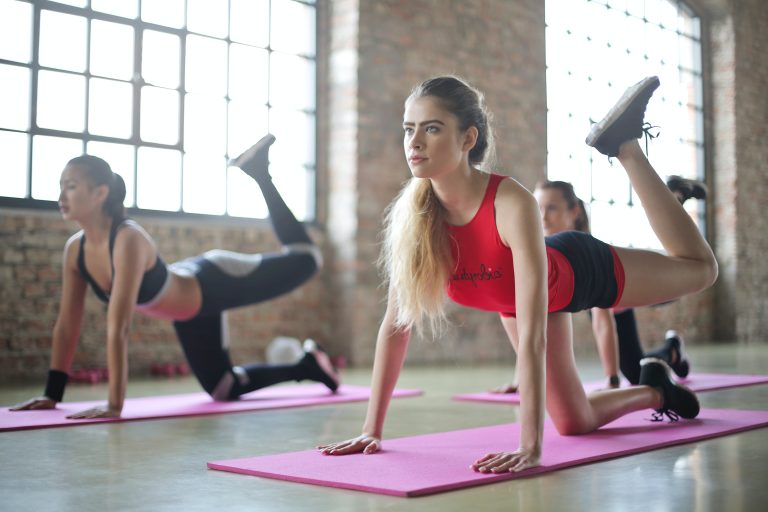Karate-Training für Fitness und Selbstverteidigung
Karate ist nicht nur eine Kampfkunst, sondern auch ein perfektes Training, um den Körper fit zu halten und die Selbstverteidigungsfähigkeiten zu verbessern.
Wie trägt Karate-Training zur Fitness bei?
Das Karate-Training umfasst viele verschiedene Übungen, die alle Bereiche des Körpers fordern. Körperkraft, Ausdauer, Beweglichkeit und Balance werden gleichermaßen trainiert und verbessert.
Einige der Übungen, die im Karate-Training häufig vorkommen, sind:
- Kicks: Kicks können helfen, die Beinmuskulatur und die Flexibilität zu verbessern.
- Punches: Das Schlagen auf den Sandsack oder die Pratzen stärkt die Arm- und Schultermuskulatur.
- Kata: Kata sind Abfolgen von Bewegungsabläufen, die dazu dienen, Beweglichkeit und Körperbeherrschung zu verbessern.
- Kumite: Kumite bedeutet Sparring und hilft dabei, die Ausdauer und Reaktionsfähigkeit zu verbessern.
Durch regelmäßiges Karate-Training können diese Übungen dazu beitragen, den Körper fitter und gesünder zu machen.
Verbesserung der Selbstverteidigungsfähigkeiten durch Karate
Neben der Fitness und dem körperlichen Training ist Karate auch eine wirksame Form der Selbstverteidigung. Die Techniken, die im Karate-Training vermittelt werden, können im Ernstfall dazu beitragen, sich effektiv verteidigen zu können.
Einige der Techniken, die Teil des Karate-Trainings sein können, sind:
- Karate-Schläge: Hierzu gehören Faustschläge, Handkantenschläge und Ellbogenschläge.
- Karate-Kicks: Kicks können dazu beitragen, den Angreifer auf Distanz zu halten.
- Hebeltechniken: Hebeltechniken können dazu dienen, den Angreifer zu immobilisieren.
Es ist wichtig zu betonen, dass Karate-Training nicht darauf abzielt, Gewalttätigkeit zu fördern. Im Gegenteil, es geht darum, sicherzustellen, dass der Karateka in der Lage ist, sich zu schützen, falls er oder sie jemals in eine Situation geraten sollte, in der es darauf ankommt.
Probiere Karate-Training aus
Falls du auf der Suche nach einer neuen Herausforderung bist oder einfach nur deine Fitness und Selbstverteidigungsfähigkeiten verbessern möchtest, könnte das Karate-Training genau das Richtige für dich sein.
Es gibt viele Karate-Dojos, die Anfänger willkommen heißen und die Grundlagen des Karate-Trainings vermitteln. Suche einfach nach einem Dojo in deiner Nähe und probiere es aus!
Nicht nur wirst du dich körperlich fit halten, sondern du wirst auch eine neue Fertigkeit erlernen und dein Selbstvertrauen stärken.
Karate-Training for Fitness and Self-Defense: FAQs
If you are considering starting Karate for fitness and self-defense purposes, you may have some questions. This article will answer the most frequently asked questions about Karate-Training.
1. What is Karate?
Karate is a martial art that originated in Okinawa, Japan. It is a form of unarmed fighting that includes various strikes, kicks, blocks, and evading techniques. Practitioners of Karate often use these techniques for self-defense purposes.
2. How does Karate benefit my fitness?
Karate can help improve fitness in various ways. Firstly, Karate involves a combination of cardiovascular and strength training exercises. The repetitive practice of katas (forms) and sparring drills can increase muscle strength, power, and endurance. Secondly, performing different Karate techniques such as kicks or punches help you to improve your flexibility and coordination. Lastly, Karate can help enhance your agility, balance, and coordination.
3. Can anyone practice Karate?
Yes, Karate is for everyone. It doesn’t matter if you are young or old, male or female, or from any cultural background. Anyone can learn Karate irrespective of body type, gender, or age.
4. What do I need to start practicing Karate?
The only requirements to begin practicing Karate are comfortable workout clothes, proper martial art shoes or barefoot, and your willingness to learn. Also, some dojos might require their students to have their own Karate uniform, known as a gi. You can also inquire if the dojo offers rentals of dojo gi if you are a beginner.
5. How long does it take to learn Karate?
The time it takes to learn Karate depends on many factors such as age and previous experience. Also, the learning process never really ends as there are always new skills to learn and techniques to improve upon. However, it usually takes between three to five years to earn a black belt in Karate.
6. What are the belt rankings in Karate?
Karate has a ranking system based on belt color to differentiate between beginner and advanced levels. The belt ordering typically starts with white, yellow, orange, green, blue, purple, brown, and finally, black. Each dojo may have slight variations as the ranking systems can vary depending on the country, instructors or organizations.
7. Can I practice Karate and still maintain my current fitness regimen?
Yes, you can. In fact, many people supplement their current workout routines with Karate to enhance their martial arts skillsets and overall fitness levels. You can also speak with your Karate instructor if you have any specific fitness goals, and the instructor may suggest specific exercises or techniques to help you achieve them.
8. How does Karate differ from other martial arts?
Karate differs from other martial arts in many ways. Karate emphasizes more striking techniques employing the use of open hand and closed fist techniques. Also, Karate highlights a focus on efficiency of movement (as opposed to flashy movements) that emphasizes a direct approach, with less emphasis on grappling, throwing, or ground fighting.
9. Can Karate help with self-defense?
Yes, Karate training can help you to learn many self-defense techniques, including basic striking and kicking techniques, blocking, and evading techniques. However, self-defense training in Karate involves much more than just learning strikes and techniques. It teaches students to choose the most efficient response during a confrontation & remains calm under pressure, using their skills carefully and appropriately.
10. How much does it cost to practice Karate?
The cost of Karate classes can vary by location, instructor, and the duration of the lesson. Monthly fees can range from $50 to $200 based on specific factors like location, program dosages, belt tests, and special events. Nonetheless, most dojos offer regular trial classes at more affordable rates, so you can determine if it’s right for you to commit before investing much more money.
Conclusion
In conclusion, Karate training can be a rewarding and healthy practice for people of all ages and fitness levels. Karate is not only excellent for building physical fitness and self-defense skills, but it also builds mental agility and emotional self-control. It’s a path of personal development that can help you achieve real personal growth. If you are considering starting Karate training, talk to your nearest dojo to understand more about their specific offerings and guidelines.
Inhaltsverzeichnis






